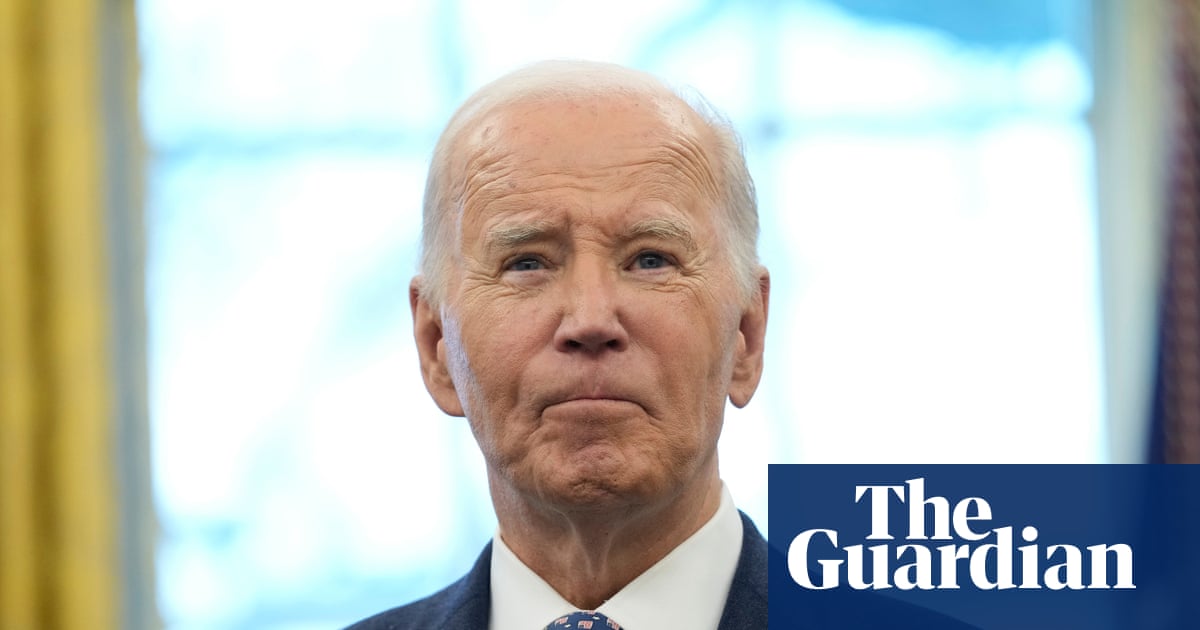Joe Biden has accused Donald Trump of “modern-day appeasement” in his approach to Russia and expressed fears that Europe would “lose confidence in the certainty of America” in his first interviewsince leaving the White House in January.
“He [Vladimir Putin] believes it [Russia] has historical rights to Ukraine,”Bidentold the BBC. Anybody who thought the Russian president would stop if Kyiv conceded territory,as recently proposed by Trump, “is just foolish”, he said.
Speaking in Delaware as the Allied nations mark the 80th anniversary of the end of the second world war, Biden said Trump’s stance was “modern-day appeasement” in reference to the attempts of British prime minister Neville Chamberlain’s to appease Adolf Hitler in the 1930s.
He also said he fearedEuropewas going to lose confidence in the “certainty of America and the leadership of America” and that a breakdown of US-Europe relations under Trump “would change the modern history of the world”.
Biden said the leaders of European nations would be left “wondering, well, what do I do now? … Can I rely on the United States? Are they going to be there?
“I fear our allies around the world are going to begin to doubt whether we’re going to stay where we’ve always been in the last 80 years,” he said.
Biden told Nick Robinson that he found theextraordinary meetingin the Oval Office between Trump and Ukraine’s president Volodymyr Zelenskyy “beneath America”.
He went on to condemn Trump’s calls for the US totake back the Panama canal,make Canada the 51st American stateandseize Greenland.
“What the hell’s going on here? What president ever talks like that? That’s not who we are,” he said. “We’re about freedom, democracy, opportunity, not about confiscation.”
Challenged about his own actions onUkraine– critics have said he was too slow to supply the weapons Kyiv needed for its defence and lift restrictions on their use – he said: “We gave them everything they needed to provide for their independence, and we were prepared to respond, more aggressively, if Putin moved again.”
Asked about his decision to leave the US presidential race only months before the election, leaving his successor, Kamala Harris little time to prepare, Biden said: “I don’t think it would have mattered. We left at a time when we had a good candidate.
“Things moved so quickly that it made it difficult to walk away. And it was a hard decision,” he said. “I think it was the right decision. I think that … it was just a difficult decision.”
